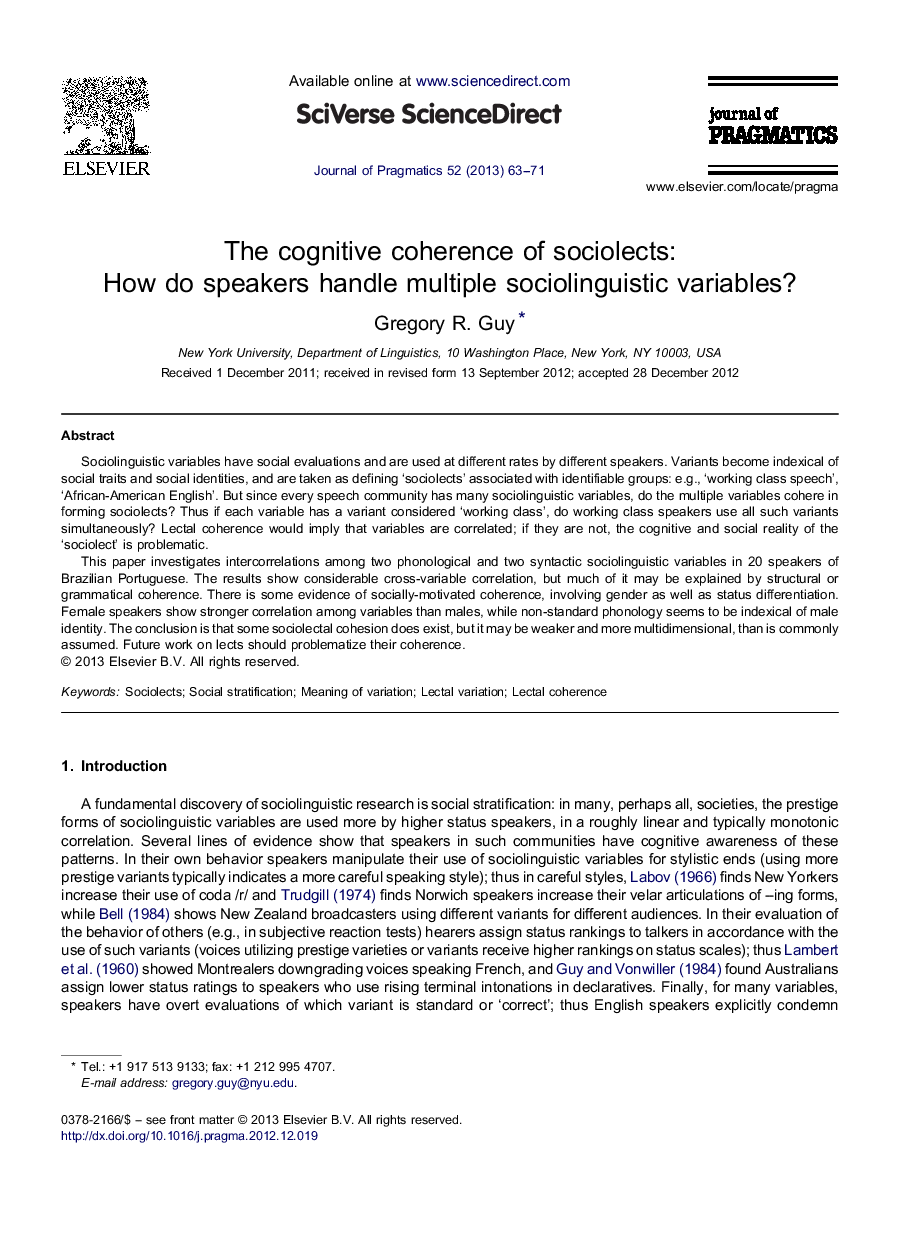| Article ID | Journal | Published Year | Pages | File Type |
|---|---|---|---|---|
| 932917 | Journal of Pragmatics | 2013 | 9 Pages |
Sociolinguistic variables have social evaluations and are used at different rates by different speakers. Variants become indexical of social traits and social identities, and are taken as defining ‘sociolects’ associated with identifiable groups: e.g., ‘working class speech’, ‘African-American English’. But since every speech community has many sociolinguistic variables, do the multiple variables cohere in forming sociolects? Thus if each variable has a variant considered ‘working class’, do working class speakers use all such variants simultaneously? Lectal coherence would imply that variables are correlated; if they are not, the cognitive and social reality of the ‘sociolect’ is problematic.This paper investigates intercorrelations among two phonological and two syntactic sociolinguistic variables in 20 speakers of Brazilian Portuguese. The results show considerable cross-variable correlation, but much of it may be explained by structural or grammatical coherence. There is some evidence of socially-motivated coherence, involving gender as well as status differentiation. Female speakers show stronger correlation among variables than males, while non-standard phonology seems to be indexical of male identity. The conclusion is that some sociolectal cohesion does exist, but it may be weaker and more multidimensional, than is commonly assumed. Future work on lects should problematize their coherence.
